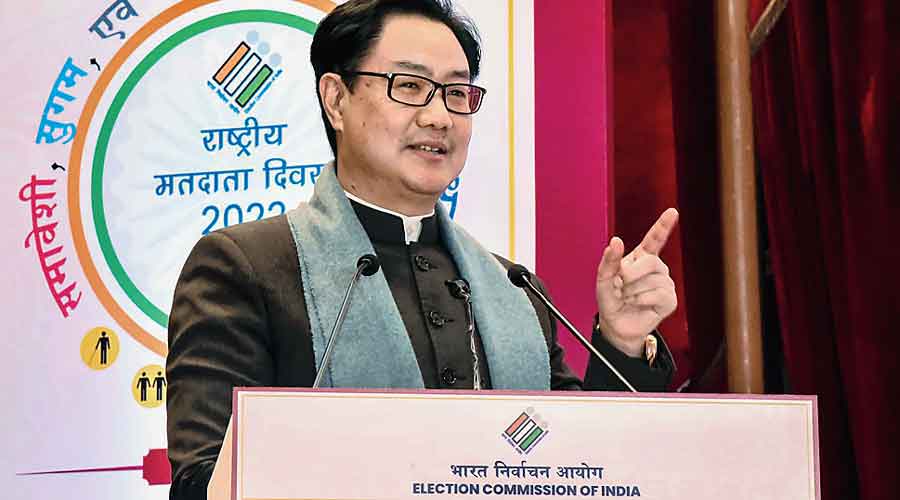It is time for another attempt. That feeling may lie behind the recent statements of the Union law minister, Kiren Rijiju, to the effect that the National Judicial Appointments Commission should replace the collegium system of appointment and transfer of judges — not that he has put this in so many words. The Narendra Modi government formulated the NJAC bill in 2014, getting it passed with the support of both houses of Parliament and endorsed by 16 state legislatures. It gave powers to the executive to participate in judges’ appointments and transfers together with the Chief Justice of India and two judges, unlike in the collegium system. The Supreme Court struck down the bill as unconstitutional in 2015. That was one more stage in the long-running tussle between the powers of the judiciary and the executive regarding judges’ appointments and transfers, with the earlier Three Judges case marking the first phase.
Mr Rijiju recently revived the debate, referring to the opacity of the collegium system among other issues. The question of opacity is important, but Mr Rijiju also said that the Supreme Court’s 2015 decision went against the collective will of the nation. The last was symbolised in the support for the NJAC. Yet, should a court of justice bow to the ‘will of the people’? There are numerous arguments against the collegium system, but it is undeniable that the NJAC was formulated by a government that has often sat on names of judges for appointments and repeatedly criticised the collegium system. Does it behoove a government to make statements that could shake the people’s faith in the judiciary? The minister’s latest comments could seem a disguised appeal to the people on the eve of a new CJI’s appointment. A democracy demands transparency, even in an independent judiciary. A way for that may have to be found. But how does Mr Rijiju’s government’s credibility look here? Is it transparent when deciding on policy? And if full parliamentary support for the NJAC is regarded as the will of the people, then the way bills are rammed through in spite of disagreement from the Opposition shows those are against the nation’s will. As law minister, Mr Rijiju should pay more attention to logic instead of concentrating on ways to ensure greater executive say in judicial appointments.










